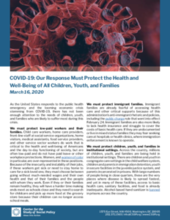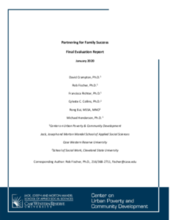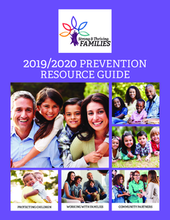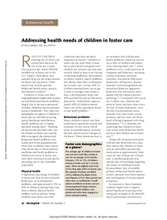Displaying 781 - 790 of 2221
This webpage from Be Strong Families features resources for families during the COVID-19 crisis.
In this statement on the COVID-19 pandemic, the U.S. Center for the Study of Social Policy calls for more support for those who are likely to be hurt most by the current crisis, particularly low-income families.
This free collection of articles includes relevant psychological research published across the APA Journals portfolio that are relevant to the topic COVID-19.
This statement from Jack P. Shonkoff of the Center on the Developing Child at Harvard University notes that the Center is "assembling easily accessible and actionable scientific knowledge for supporting the developmental needs of young children and their families in this current context."
This resource offers information on supporting and protecting children’s emotional well-being as this public health crisis unfolds.
This book brings together knowledge of how modern countries in Europe and the United States deal with the issue of errors and mistakes in child protection in a cross-national perspective.
This report presents the results of an evaluation of the Partnering for Family Success (PFS) program, which was conceived as an innovative intervention to address the particular needs of housing unstable families who had a child in the custody of the county child welfare agency.
This article describes a trauma-informed and integrated child welfare model, including information about its development, structure and organization, and programs. It concludes with a discussion of lessons learned and remaining challenges.
This Resource Guide offers support to community service providers as they work with parents, caregivers, and children to prevent child maltreatment and promote social and emotional well-being.
This article takes a look at physical and behavioral health problems in children and teens in foster care in the U.S. and offers information and tips for providing care to this vulnerable population.




